Rare birds appear on restored wetland 'in hours'
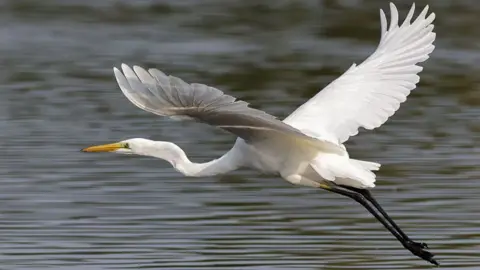 Richard Nicoll
Richard NicollRare wetland birds such as cranes and great egrets have appeared within hours of the completion of a peatland restoration project, according to the National Trust.
The charity began restoring 590 acres (238 hectares) of lowland peat, a vital carbon store, at its oldest nature reserve, Wicken Fen in Cambridgeshire, a year ago.
Peatland restoration project manager Ellis Selway said: "Seeing nature respond so quickly gives us real hope for the future of this landscape."
The £1.8m works also revealed a significant archaeological discovery - a 5,000-year-old bog oak that archaeologists say is older than Stonehenge.
Mr Selway said: "Watching cranes arrive so soon after we raised the water was a moment I won't forget - it made all the effort and planning worthwhile."
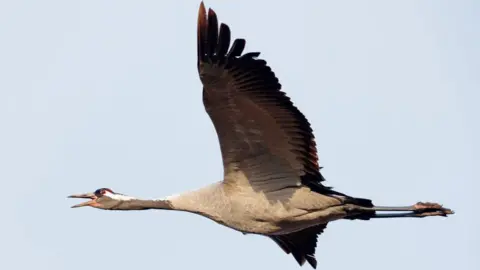 Richard Nicoll
Richard NicollPeatlands, like those at Wicken Fen, store more carbon than all the world's forests combined, according to the National Trust.
Part of the project focused on Burwell Fen, which had been reclaimed for agriculture during World War Two and was acquired in 2001.
 FEPP
FEPPDespite being drained and degraded, it included an area of deep peat where an extinct river once flowed.
While a full fen habitat will take time to develop, other notable species that appeared shortly after Burwell Fen was re-wetted included spoonbill and wading birds such as curlew and a pair of little ringed plovers.
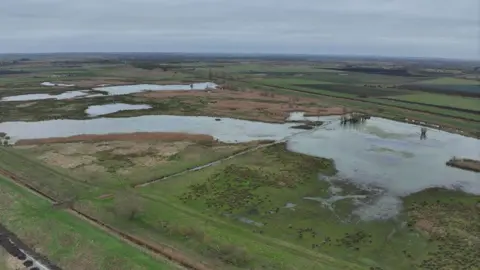 FEPP
FEPPThe ancient bog oak was unearthed from peat at Spinney Bank.
Cambridge Archaeological Unit used tree-ring analysis to reveal it began growing 2,894 BC, lived for 222 years, and pre-dated the start of peat formation.
"Discovering a tree that took root nearly 5,000 years ago is a humbling reminder of how much history is preserved in these ancient landscapes," said Mr Selway.
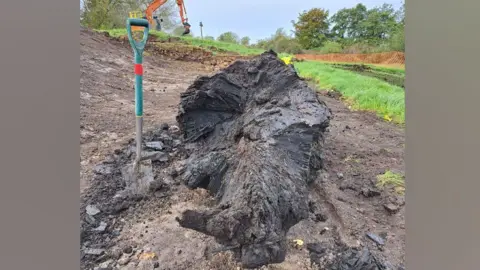 National Trust
National TrustHowever, a find initially believed to be a 17th Century cannonball from the English Civil Wars is more likely to have been a rollerball from a 19th Century wind pump.
The trust said the project was its largest lowland peat restoration project
Emma Ormond-Bones, Wicken Fen general manager, said: "It's providing the space and conditions nature needs to recover, while also helping to store carbon and make landscapes more resilient to future environmental challenges."
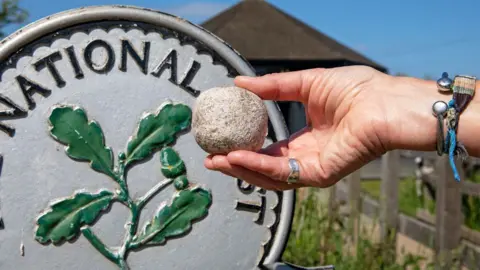 Mike Selby/National Trust
Mike Selby/National TrustFollow Cambridgeshire news on BBC Sounds, Facebook, Instagram and X.
